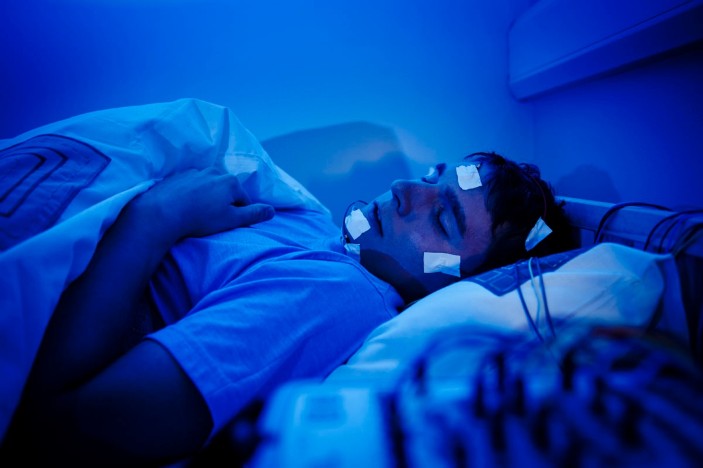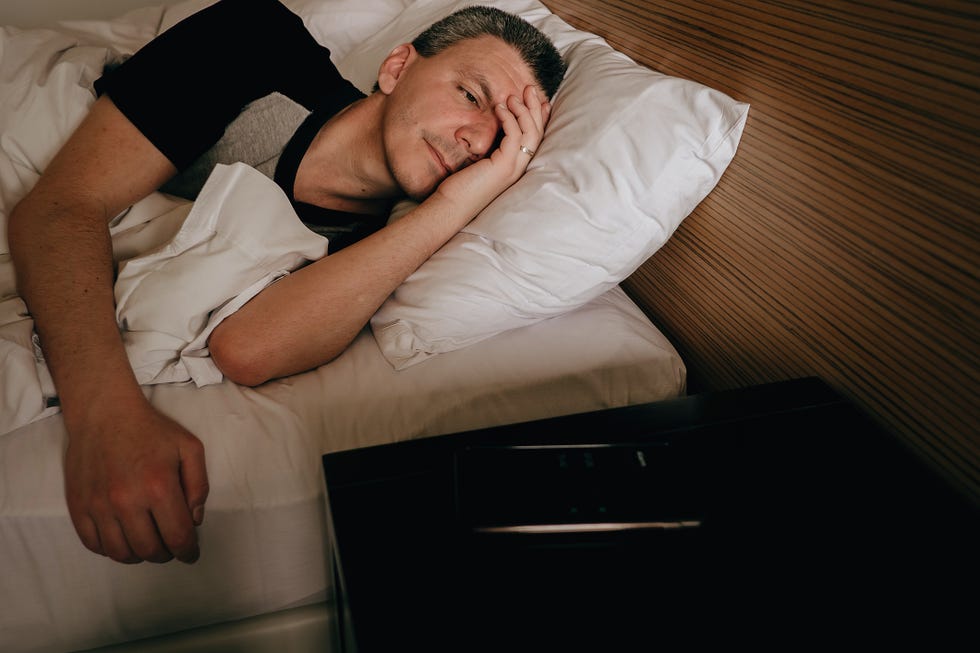Effective Treatment Solutions for Managing Rest Disorders and Enhancing Peaceful Sleep
In the realm of health care, the monitoring of rest disorders and the mission for restful sleep are essential parts of general well-being. As we navigate the detailed landscape of rest disorders and seek to improve our rest experience, a deeper understanding of these treatment remedies may hold the secret to opening a more refreshing and meeting restorative trip.
Cognitive Behavior Treatment for Sleep Problems (CBT-I)
Cognitive Behavior Modification for Sleeplessness (CBT-I) is an organized, evidence-based therapy technique that concentrates on attending to the hidden factors adding to rest disruptions. This sort of treatment aims to modify habits and thoughts that intensify insomnia, ultimately promoting healthy rest patterns. CBT-I commonly involves numerous essential elements, including cognitive therapy, rest constraint, stimulus control, and rest hygiene education and learning.
Cognitive treatment assists individuals recognize and transform adverse thought patterns and ideas concerning rest that may be impeding their capacity to fall or stay asleep. Rest constraint involves restricting the quantity of time spent in bed to match the individual's actual sleep period, therefore raising rest effectiveness (cognitive behavioral therapy for insomnia (CBT-I)). Stimulation control methods help develop a strong association between the bed and sleep by urging people to head to bed just when drowsy and to prevent involving in boosting tasks in bed
Additionally, rest hygiene education concentrates on developing healthy and balanced sleep habits, such as preserving a consistent sleep routine, creating a relaxing going to bed routine, and maximizing the rest setting. By resolving these elements thoroughly, CBT-I provides a reliable non-pharmacological intervention for taking care of sleeping disorders and improving total sleep quality.
Rest Hygiene Practices
Having actually developed the structure of cognitive restructuring and behavioral alterations in dealing with insomnia via Cognitive Behavioral Therapy for Sleeplessness (CBT-I), the focus currently shifts in the direction of checking out essential Sleep Hygiene Practices for keeping optimum rest quality and total wellness.
Sleep hygiene methods encompass an array of practices and environmental variables that can substantially impact one's capability to go to sleep and remain asleep throughout the night. Constant rest and wake times, developing a relaxing bedtime routine, and enhancing the rest atmosphere by keeping it dark, quiet, and cool are critical components of great sleep hygiene. Limiting exposure to displays before going to bed, staying clear of stimulants like caffeine near to going to bed, and participating in regular physical task throughout the day can also promote much better rest quality.
Furthermore, exercising relaxation techniques such as deep breathing workouts or reflection prior to bed can assist soothe the mind and prepare the body for sleep. By incorporating these sleep hygiene techniques into one's everyday routine, people can establish a healthy rest pattern that supports peaceful sleep and overall health.
Leisure Techniques and Mindfulness
Applying leisure techniques and mindfulness methods can play an essential duty in promoting a sense of calm and advertising high quality sleep. sleep disorder treatment. These strategies aim to silent the mind, decrease stress, and develop an optimal atmosphere for restful rest. One widely exercised method is deep breathing workouts, where individuals concentrate on slow, deep breaths to loosen up the mind and body. Progressive muscle mass leisure involves tensing and afterwards releasing each muscle mass team, advertising physical relaxation. In addition, assisted images can aid move individuals to a relaxed area in their minds, aiding in stress and anxiety decrease and boosting sleep high quality.
Mindfulness description techniques, such as reflection and yoga exercise, are additionally efficient in promoting relaxation and improving rest. Mindfulness motivates individuals to remain existing in the moment, releasing fret about the past or future. By including these methods right into a going to bed regimen, people can indicate to their bodies that it is time to take a break and prepare for sleep. Generally, integrating leisure techniques and mindfulness techniques can dramatically add to handling sleep conditions and improving general sleep site link quality.

Medicine Options for Sleep Disorders
After checking out leisure strategies and mindfulness practices as non-pharmacological treatments for improving sleep quality, it is vital to think about medicine alternatives for people with sleep conditions. In instances where way of living changes and therapy do not provide sufficient relief, medicine can be an important tool in taking care of rest disruptions.
Commonly suggested drugs for sleep disorders include benzodiazepines, non-benzodiazepine hypnotics, antidepressants, and melatonin receptor agonists. Antidepressants, such as trazodone, can be useful for individuals with co-occurring depression and sleep disturbances - insomnia counseling.
It is vital for individuals to talk to a medical care supplier to identify one of the most suitable medicine choice based upon their certain sleep problem and case history.
Light Therapy for Circadian Rhythm Regulation
Light treatment, additionally known as photo-therapy, is a non-invasive treatment approach used to regulate circadian rhythms and boost sleep-wake cycles. This therapy entails direct exposure to bright light that resembles natural sunshine, which aids to reset the body's biological rhythm. By revealing individuals to certain wavelengths of light, commonly in the early morning or night depending on the wanted impact, light treatment can efficiently change the body clock to promote wakefulness throughout the day and boost relaxing sleep at pediatric sleep study night.
Research study has revealed that light treatment can be especially helpful for people with circadian rhythm problems, such as postponed sleep phase disorder or jet lag. It can likewise be handy for those experiencing seasonal depression (SAD), a sort of anxiety that commonly occurs during the winter season months when all-natural light exposure is decreased. Light treatment is normally well-tolerated and can be utilized combined with other treatment approaches for rest problems to maximize results and improve overall sleep high quality.
Verdict
In final thought, efficient treatment solutions for handling sleep conditions and improving peaceful rest include Cognitive Behavioral Therapy for Sleep Problems (CBT-I), rest hygiene techniques, leisure strategies and mindfulness, medication options, and light therapy for body clock guideline. These strategies can help people enhance their sleep top quality and total wellness. It is necessary to consult with a health care copyright to establish one of the most appropriate approach for dealing with sleep concerns.
As we browse the intricate landscape of sleep problems and seek to boost our rest experience, a much deeper understanding of these treatment options might hold the trick to opening a much more rejuvenating and meeting corrective journey.
Rest limitation involves restricting the quantity of time spent in bed to match the person's actual rest duration, therefore boosting rest performance. Constant sleep and wake times, developing a relaxing going to bed regimen, and enhancing the rest atmosphere by maintaining it dark, silent, and cool are critical elements of excellent sleep health. Light therapy is generally well-tolerated and can be utilized in combination with various other therapy methods for sleep problems to optimize outcomes and improve overall rest high quality.

Comments on “Cognitive Behavioral Therapy for Insomnia (CBT-I) - Proven Methods”